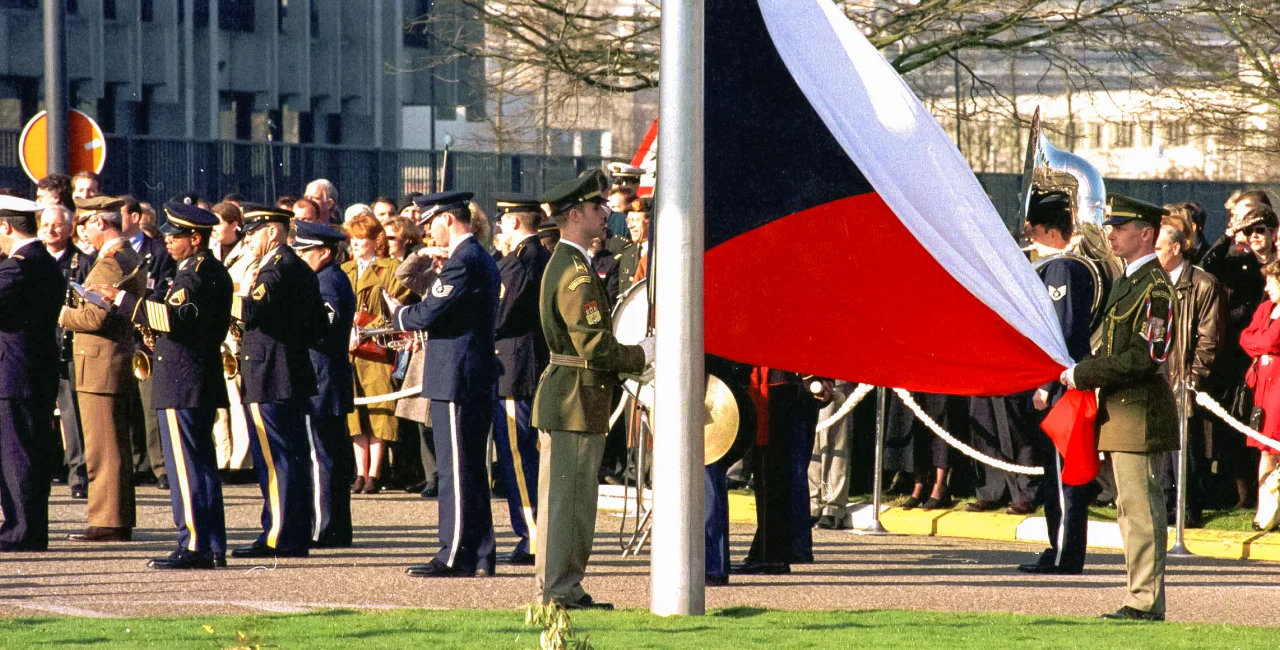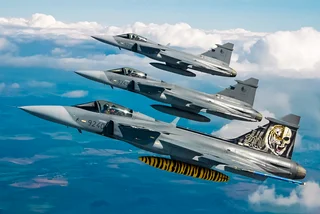On March 12, 1999, the Czech Republic marked a pivotal moment in its history by joining NATO. Today, it commemorates the 25th anniversary of participating in a defense alliance governed by Article 5 of the Treaty, pledging collective defense in the event of an attack on any member state.
Prague Castle will host the conference entitled "Our Security Cannot Be Taken for Granted" on Tuesday to mark the anniversary. Former U.S. President Bill Clinton, ex-NATO Secretary-General George Robertson, and top Czech officials will speak.
A flyover featuring Czech and German planes, including JAS-39 Gripen fighters and Eurofighter Typhoons, will take place in Prague around 10:30 a.m. Later this afternoon, President Petr Pavel will confer a state award on Clinton, who will join the conference discussions on NATO’s future.
A brief history of Czech NATO membership
NATO, originally formed after World War II to ensure collective security, initially comprised Western nations on the opposite side of the Iron Curtain. The expansion of NATO to include the Czech Republic, Hungary, and Poland was championed by U.S. Secretary of State Madeleine Albright. This move, as Albright stated, marked the Czech Republic's full integration into the European community, signifying a commitment "fully, finally, and forever."
The official accession ceremony occurred at the Truman Library in Independence, Missouri. In 1999, at the Washington summit, NATO added the Czech Republic, along with Hungary and Poland, and established the protocol for Membership Action Plans. This momentous decision further solidified the Czech Republic's position at the heart of Europe.
While Czechia later joined the EU in 2004, its NATO membership constituted the initial significant step in integrating a former Eastern-bloc state into the Western international alliance. This strategic move, born from a commitment to collective security in a post-Cold War era, reflected the young nation’s enduring dedication to fostering regional stability and global cooperation.

Czech president on the alliance today
In a commentary published in NATO Review today, Czech President Petr Pavel, a former NATO general, reflected on Czechia’s NATO accession twenty-five years ago, acknowledging the significance of joining the alliance for a country that had experienced the trauma of the Munich Agreement but also the fall of the Communist regime and the subsequent withdrawal of the occupying Soviet troops.
"For 30 years, we had no real threat to consider, and we enjoyed the peace dividend. European countries saw their military capacity fall, yet NATO remained parametrically more powerful than Russia, in military terms, due to great economic strength," Pavel wrote.
However, in the current geopolitical landscape marked by Russian aggression in Ukraine, Pavel emphasized the importance of modernization, defense capacity building, and countering information warfare to secure the alliance moving forward.
NATO currently mandates members to spend at least 2 percent of GDP on defense. While Pavel notes that the Czech Republic enacted a policy requiring a minimum defense spending of 2 percent of GDP, which aligns with NATO's 2014 goal to be achieved by 2024, whether the country will reach the 2 percent threshold this year remains uncertain.
Challenges ahead for NATO members
As the country continues to navigate uncertain geopolitical terrain, its continued dedication to fostering regional stability and global cooperation within the NATO alliance will be tested.
Pavel remarked on the importance of maintaining transatlantic ties and called on European NATO members to reassure their North American allies of their commitment to collective defense. He warned against the resurgence of nationalist tendencies fueled by disinformation.
The Czech President’s commentary echoes the controversial remarks made by former U.S. President Donald Trump during his tenure. Trump, who could return to lead the country after four years, has insisted that allies should "pay their bills," which has led to tensions within the alliance, raising questions about the shared commitment to defense.
On Monday, the U.S. White House announced that Czech Prime Minister Petr Fiala would meet with U.S. President Joe Biden in the U.S. on April 15. The meeting will focus on reaffirming support for Ukraine and discussing common priorities, such as security, economics, and democratic values, to strengthen the partnership between the U.S. and Czechia.













 Reading time: 3 minutes
Reading time: 3 minutes 



























